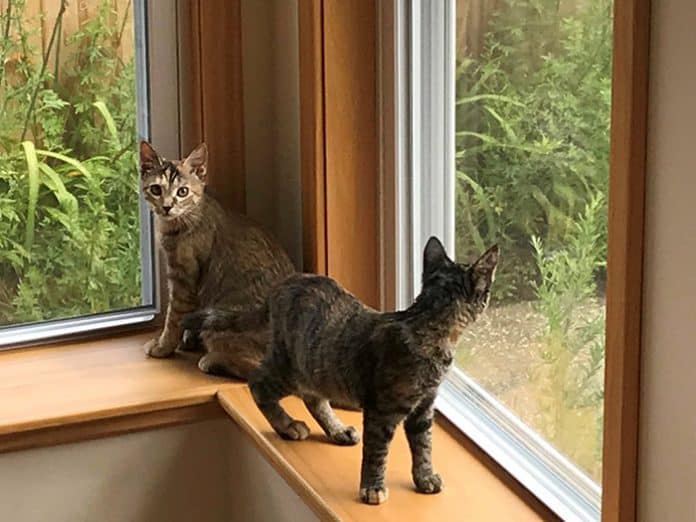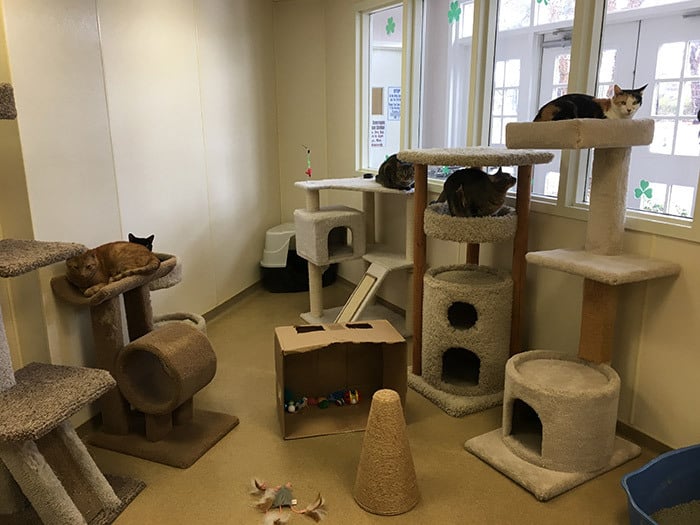
MANCHESTER – The program was to terminate at the end of this year. However, the success of the township’s “Trap, Neuter, Release” program prompted council to keep it going indefinitely.
The ASPCA supports such programs, what it calls the “only proven humane and effective method to manage community cat colonies.”
So how does the program work? Cats are trapped, spayed or neutered and vaccinated against rabies, and then returned to their colony to live out their lives. Most TNR programs use a colony caretaker, a person who provides food and shelter to the colony and monitors its health, according to the ASPCA.
“TNR helps stabilize the population of community colonies and, over time, reduces them. Nuisance behaviors such as spraying, excessive noisemaking and fighting are largely eliminated and no additional kittens are born,” the ASPCA website said.
The ASPCA said that by stabilizing these populations, the cats will have more space, shelter and food. Spayed and neutered cats are generally healthier cats; it calms male cats, which are prone to fights, and eliminates females from going into heat, thereby attracting fewer toms.
Manchester Township Business Administrator Donna Markulic said the township is pleased with the results of the program.
“We have seen our vet/shelter bills drop since the inception of the program. For example in 2013 our emergency vet/shelter bills totaled $20,889. Since the program started the bills have been 2016: $14,560, 2017: $12,005 and year to date 2018 is $6,825,” Markulic told The Manchester Times. “Experts say that it take 5 years to see a significant decrease in the cat colonies. But we have definitely seen a decrease in costs and the cats that do end up in the shelters are more adoptable due to being free of disease so less cats are euthanized. The 138 cats brought in and spayed or neutered in 2017, 87 were female so that is minimally 87 less liters of cats in Manchester. The results are cumulative.”
The program is run by the township’s animal control officer Margaret Dellapietro.
The township gives $10,000 out of its animal control budget to Voluntary Auxiliary for Animal Shelters, Inc., which offers trap and neuter services.
According to township records, most of the cats caught and released this year, since February, have been adult cats. Three cats out of the dozens listed have been adopted. Most were released to the same spot they were trapped.

Community cats are not stray cats, however. These cats are either born in the wild or are abandoned and must adopt wild behaviors to survive.
The cats have been found all over town: Whiting, Pine Ridge, Village 7, Fox Hollow, Crestwood 7, Crestwood 5, Oak Knoll, Village 4, Villag 6, Crestwood 1, Crestwood 4, along Route 70, Beckerville, Cedar Glen, and Pine Lake Park.
Not everyone is a fan. In a March 8, 2017 guest blog for National Geographic’s “Changing Planet,” Daphna Nachminovitch, senior vice president of cruelty investigations for People for the Ethical Treatment of Animals, said TNR programs are not only inhumane to those they purport to help—the cats—but are a danger to other wildlife, specifically birds, and humans.
“TNR programs are doomed to failure because of basic population dynamics: Even if all of the cats in a ‘colony’ are eventually spayed and neutered (which is nearly impossible), the food set out for them will always attract ‘new’ cats. And feeding cats also promotes abandonment, since people are more inclined to abandon their cats if they believe that someone else will ‘take care of’ them,” Nachminovitch wrote.
Homeless cats should be adopted into homes, and if that’s not possible, Nachminovitch argued, euthanized.
The ASPCA agrees that cats, specifically kittens, should be socialized and adopted if at all possible.
The Centers for Disease Control and Prevention has come out against TNR programs as well. The CDC’s concern lies with disease prevention, especially rabies.
“Moreover, TNVR has not been shown to reliably reduce feral cat colony populations because of low implementation rates, inconsistent maintenance, and immigration of unsterilized cats into colonies. For these reasons, TNVR programs are not effective methods for reducing public health concerns or for controlling feral cat populations. Instead, responsible pet ownership, universal rabies vaccination of pets, and removal of strays remain integral components to control rabies and other disease,” a CDC report on programs said.
However, Manchester Council President Craig Wallis said the township is pleased with the program and said it should continue.
To report feral cats, call Animal Control 8:30 a.m. to 4 p.m. weekdays, excluding holidays, at 732-657-2009 ext. 4606.






